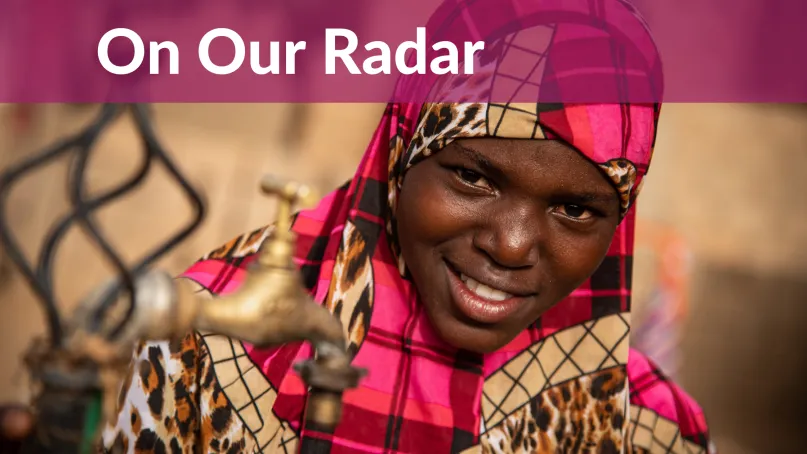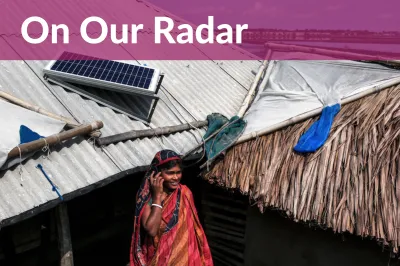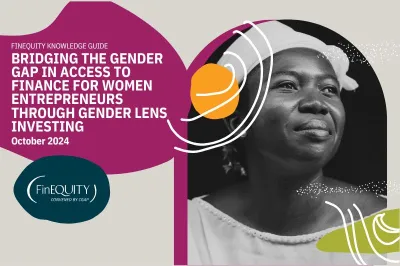FinEquity Africa On Our Radar: November 2024

An updated take on "What We're Reading". The FinEquity Africa team brings you a curated list of women's financial inclusion and economic empowerment content we've been consuming recently, from podcasts, new initiatives and articles to videos and social posts.
On Our Radar
How an African Approach to Financing Models can Drive Growth and Inclusion
Financial behavior in Africa differs significantly from that of West. While consumer debt and credit cards dominate in the West, African communities lean on trust-based systems like rotating savings and credit associations (ROSCAs), known locally by various names such as “esusu” in Nigeria or “stokvels” in South Africa or “chama” in Kenya. This article from the World Economic Forum explores how innovative African financing models are driving financial inclusion by bridging gaps in underserved communities. It unpacks how different community-based solutions, catering for local needs and cultural practices, are transforming access to credit and financial services. Learn more how Africa's approach is reshaping global perspectives on inclusive finance.
Through the Gender Lens
Despite increased focus on refugee finance, the needs of displaced women remain overlooked. This report by Mercy Corps, calls for real, gender-inclusive solutions, urging financial service providers to design products that truly serve women. It delves into the spectrum of issues affecting:
- Women’s economic advancement and opportunity (driven by women’s difficulty in accessing decent employment, their low incomes and low return on labour driven by society’s expectations of women around domestic work and child care).
- Access to opportunity, skills training or education (hampered by women’s mobility restrictions, cultural norms, and the digital gender divide).
- Access to assets and support services (fueled by negative societal beliefs about women’s ownership and control of resources).
- Women’s agency and decision-making power (typified by cultural and religious beliefs in what women should and can exercise control over, exemplified in instances such as elite capture within savings groups and other leadership structures).
Beyond Money: Savings Groups as a Platform for Addressing Root Causes of Gender Inequality
While savings groups are widely acknowledged to increase women’s individual agency, there has been less focus on the potential of these groups to act as a platform for addressing the systemic barriers women face in improving their economic situation. The potential of savings groups goes beyond money. Savings groups can be a platform for overcoming the challenges women face in homes, communities and markets which prevent them from improving their economic situation. CARE's learning report explores several ways savings group programs are catapulting women into entrepreneurship and economic resilience by addressing barriers to gender equality, by sharing collective insights and examples drawn from projects across ten countries. The report builds upon the evidence base and learning established in the brief Gender Equality through Savings Groups: Learnings from East & Central Africa, reviewing a range of more recent projects across additional regions to learn from their collective achievements.
Investing for Financial Inclusion: Four Enablers for Outcomes Measurement and Management
Impact investors are shifting towards outcomes-focused impact measurement and management (IMM) to enhance transparency and mitigate risks. This approach prioritizes measuring actual development and intermediate outcomes, like women's economic empowerment, and integrates this data into decision-making. The paper outlines key enablers to advance outcomes-focused IMM within financial inclusion investments.
WEE CoP Promising Interventions
This document provides an overview of four key interventions aimed at advancing women's economic empowerment in Kenya across various sectors.
- The BuildHer program, established in 2019, focuses on training low-income women for careers in the male-dominated construction industry. It has successfully trained 680 women, 80 percent of whom are now earning dignified wages, and aims to increase women's participation in construction from 3 to 10 percent by 2030.
- The Women-in-Business Incubation Project, a collaboration between the University of Nairobi and TechnoServe, supports 240 women entrepreneurs by providing access to credit, market linkages, and mentorship, resulting in 58 new businesses and significant financial gains for participants.
- The Kidogo Early Years Network empowers informal childcare providers, increasing their income while improving childcare services for over 43,000 children.
- The Unveiling Her Star program, launched in 201 5, equips women with skills for non-traditional sectors like construction, significantly improving their economic independence.
Collectively, these programs emphasize the importance of policy advocacy and practical support in fostering sustainable change for women, transforming both their livelihoods and societal perceptions of women's roles in various industries.


